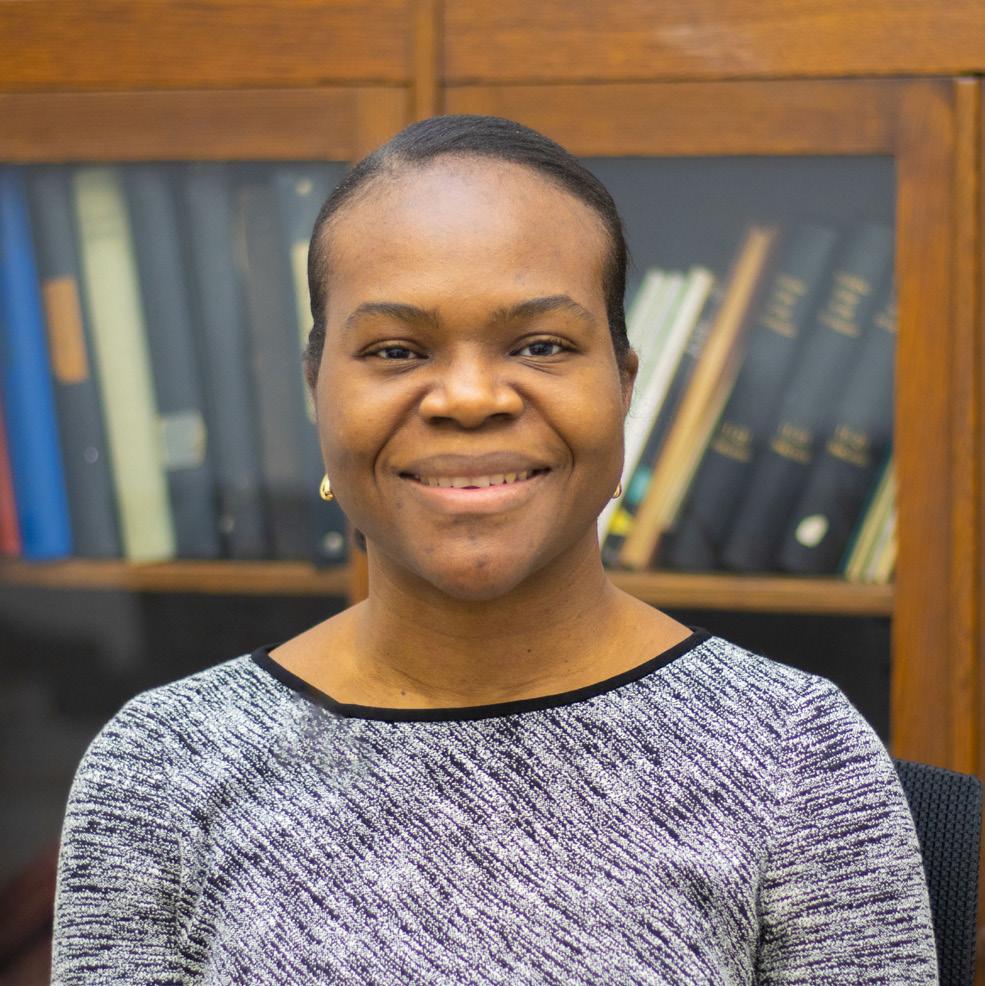
2 minute read
Student SPOTLIGHT Rachele Rameau
As a doctoral student, Rachele has explored different model organisms, including C. elegans and Dictyostelium, until focusing on cancer research using mammalian cell lines and mice xenografts. Throughout her PhD, while exploring options for her research work, Rachele realized that CCNY could offer students support and many research opportunities. She found herself fortunate to join Dr. Karen Hubbard’s lab and being given the opportunity to collaborate in understanding potential mechanisms by which ruthenium-based compound, Ru-IM, is inducing cell death in cancer cells. Her doctoral thesis work focuses on the role of ruthenium-based compound, Ru-IM, in altering mechanisms in triple-negative breast cancer derived from different ethnic groups. What Rachele enjoys the most about her studies and research is the opportunity to use a variety of techniques and procedures to understand and explain phenomena and find possible answers to her scientific question.
After coming to New York from Haiti and exploring different options for her college studies, Rachele Rameau knew that science was the right choice after taking her first introduction to biology course. She immediately wanted to learn more, and now she is completing her PhD at the CUNY Graduate Center Molecular, Cellular and Developmental Biology Program. What led her to this point is a path of hard work, dedicated studying, and finding supportive mentors along the way that helped her explore her education and career options.
Advertisement
Rachele first learned about research while completing advanced research courses in her undergraduate studies at Brooklyn College. There her first lab experience was studying the potential of microalgae as a source of biofuel production. She found joy by learning about the big picture in science as well as technical skills including how to isolate and screen different algal strains derived from freshwater for their lipid content. She is grateful for her participation in the New York City Louis Stokes Alliance for Minority Participation (NYC-LSAMP) which helped her stay focused and interested in the different ways biology work is produced and presented. In addition, she gained opportunities to attend national conferences, and continued additional research on viruses that attack Mycobacterium smegmatis and on functional yeast amyloids which led to her first publication.
Research and lab work require a lot of troubleshooting and thinking outside of the box since the answers are not always clear cut. Rachele keeps at it by staying openminded and remembering to approach problems in new ways. She attests to her self-discipline and endless support from mentors as key in moving forward with her work. Keeping in mind that everything “is a work in progress”, she says and she “just tries to learn every day and learn new ways to do things” whenever she can. She knows firsthand how hard the path to reaching our goals can be, but “we have to keep faith and keep working,” because “nothing is perfect, we must trust the process of trying new things and seeing what happens.”
Advice she offers others is to participate in programs such as the Graduate Research Training Initiative for Student Enhancement (G-RISE) if possible and engage with mentors and peers who will help lift you up when you need motivation to keep going. “At the end of the day, you will be the one making the decision,” Rachele shares, so trusting yourself, choosing what you want to do and what works for you is the most important. Rachele will take this strong mindset with her into the future, where she sees herself putting more time into what makes her happy, such as research and teaching, and she will keep an open mind to what comes along the way.










